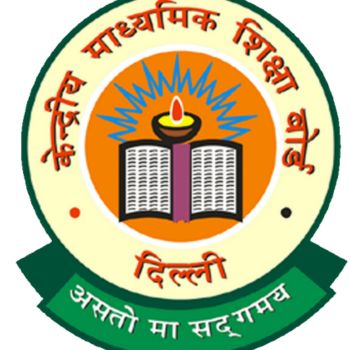BA Hons Sanskrit is a 3-year undergraduate course that provides knowledge of the Sanskrit language, literature, and ancient texts, including grammar, poetry, prose, and cultural/historical aspects of Sanskrit works. The demand for experts in this ancient Sanskrit language is prevalent in academics, research, and cultural preservation.
BA Sanskrit Honours is primarily based on theoretical knowledge. Students gain in-depth knowledge regarding classical and Vedic literature, Sanskrit grammar, Indian philosophy, and aspects of Indian culture and history.
Candidates must have a minimum of 45% in their 10+2 coursework from any stream in order to be eligible for BA Honours Sanskrit. CUET (UG) is also considered for admission by certain universities.
St. Xavier's College and C.V. Raman University are two prestigious universities that offer this course. Various career options are available after a BA Hons in Sanskrit, such as teaching, research, translation, heritage conservation, and journalism, which are made possible by a bachelor's degree in Sanskrit. The course fees for a Bachelor of Arts Honors in Sanskrit range between INR 10,000 to INR 25,000, depending on the institution.
Table of Contents
- BA Hons Sanskrit Highlights
- What is BA Hons Sanskrit?
- Why Study BA Hons Sanskrit?
- Who should pursue BA Hons Sanskrit?
- BA Hons Sanskrit Admission Process 2025
- BA Hons Sanskrit Eligibility
- Top Colleges in India for BA Hons Sanskrit
- BA Hons Sanskrit Entrance Exams
- BA Hons Sanskriti Syllabus
- BA Sanskrit Hons. VS BA in Sanskrit
- BA Hons Sanskrit Jobs Job Opportunities
- BA Hons Sanskrit FAQs
BA Hons Sanskrit Highlights
The basic details of BA Honours Sanskrit are as follows:
What is BA Hons Sanskrit?
A Bachelor of Arts Honors in Sanskrit gives students an insight into the Sanskrit language and how it can be utilised from an academic perspective in industries such as education, Indian Archaeology, Manuscript Preservation, etc. It also helps students to work in administrative sectors as translators and interpreters. It is an undergraduate program focusing on the Sanskrit language, ancient texts, and traditional Indian culture. The course includes the study of classical Sanskrit literature, like the Mahabharata and Ramayana. The course also provides students with the knowledge of philosophical and theological aspects.
After completing BA Honours Sanskrit, a graduate can work as a Sanskrit teacher in schools or universities, where they can teach students about classical texts such as the Bhagavad Gita, the Vedas, or the Upanishads. Also, a graduate can become a researcher or translator of ancient Sanskrit manuscripts.
Why Study BA Hons Sanskrit?
BA Honours Sanskrit provides students in-depth knowledge of ancient texts and understanding of India's cultural and philosophical heritage. The course provides students with the opportunity to work in research, academia, translation, and cultural preservation. A few reasons to pursue this course include:
- The demand for studying BA Honors in Sanskrit is growing as there is an increasing importance of preserving ancient knowledge. This has led to a greater demand for Sanskrit experts who can read, interpret, and translate.
- Aftera BA in Sanskrit, graduates can work as a translator for a publishing house, by helping them translate Sanskrit texts into modern languages.
- It enables scholars to learn about the Linguistics and Literature of one of the world’s oldest languages.
- It opens paths for researchers to study the ancient usage of language and its delve into Philosophy.
- Due to the decline in the number of students studying BA Hons Sanskrit, there is more scope in professions such as lecturers, translators, and interpreters.
- Great for scholars looking to pursue a Master's or PhD in the same field.
Who should pursue BA Hons Sanskrit?
Below mentioned are the points that why candidates should pursue this course:
- Those who are passionate about ancient languages, especially Sanskrit, and their literary, philosophical, and historical texts.
- Learners who are are eager to learn the ancient Hindu scriptures of India Vedas, Upanishads, epics Ramayana, Mahabharata and classic literature.
- Students who like to study more about grammar, etymology, and how language is put together.
- Candidates who are interested in becoming teachers, lecturers of Sanskrit or Indology, Philosophy or Linguistics.
- It has the advantage of being of use to those students who are likely to give the UPSC or the state PSC examinations because Sanskrit is an optional subject and it aids in comprehension of Indian polity, philosophy and history.
- A good source in case one wants to know Hindu religious/spiritual texts as they are.
- Those who desire to study further on the Indo-European linguistics as Sanskrit is a root language of this group.
- Translators of Sanskrit, or teachers of school level materials in traditional Indian knowledge system
- It is students who intend to work in temples, cultural institutions or religious organizations in which Sanskrit knowledge is necessary.
BA Hons Sanskrit Admission Process 2025
Admission to BA Honours Sanskrit at the University of Calcutta is generally based on merit (Class 12 marks), although CUET (UG) may be considered if mandated by UGC. Candidates must follow the steps below:
Step 1: The interested applicants have to register online by using the official admission portal of the University of Calcutta
Step 2: Fill out the BA Hons. Sanskrit application form, upload necessary documents, and submit the application.
Step 3: Based on Class 12 merit (or CUET-UG score, if applicable), a provisional merit list will be released. Shortlisted candidates will be called for counselling/document verification.
Step 4: The candidates should be able to pay the admission fee online after having been selected to secure a position in the program.
Documents Required:
- 10th and 12th Marksheets
- Government-issued ID (Aadhar Card, PAN card, Passport, etc.)
- Passport-size Photographs
- Digital Signature
- Transfer Certificate (if applicable)
- Character Certificate from the last institution
- Selected candidates shall pay the course fee to confirm admission.
BA Hons Sanskrit Eligibility
Before applying for admission, candidates need to be eligible for the program. This may vary across institutes. The basic eligibility criteria for admission to the BA Sanskrit Honours are as follows:
- The candidate must have passed 10+2 with a minimum aggregate of 45% marks in any field.
- Some colleges may require candidates to appear for entrance exams, such as CUET (UG).
- Candidates belonging to the reserved category are eligible for certain relaxations.
Top Colleges in India for BA Hons Sanskrit
It is a wise choice to pursue BA Hons Sanskrit from a top Indian University. Some of the top colleges for BA Honours Sanskrit are as follows:
BA Hons Sanskrit Entrance Exams
CUET-UG is one of the most widely accepted entrance examinations for BA Sanskrit Honours. The table below discusses the entrance tests:
BA Hons Sanskriti Syllabus
The BA Hons Sanskrit Hons Syllabus is divided into six semesters. The detailed syllabus from University of Calcutta is mentioned below:
BA Sanskrit Hons. VS BA in Sanskrit
Mentioned below is the comparison between BA Hons. Sanskrit and BA Sanskrit:
BA Hons Sanskrit Jobs Job Opportunities
The basic details of jobs after BA Honours Sanskrit are as follows:
- Industry: Students after BA Hons. in Sanskrit are employable in research, academia, writing or translation.
- Employment Demand: In recent years, there has been a significant increase in the demand for Sanskrit literature and traditional Indian culture.
- Average Salary: The average salary of a Professor varies based on experience, industry and location. The average salary ranges between INR 2-5 LPA.
There are various job roles available for BA Hons in Sanskrit. As per Payscale, the average package of various job roles according to the years of experience is mentioned in the table below:
Given below is an overview of career opportunities and starting salary ranges for professionals post the completion of a BA Sanskrit Honours.
BA Hons Sanskrit FAQs
How does the BA Honors in Sanskrit course help in understanding Indian culture and traditions?
A bachelor's degree in Sanskrit gives students an understanding of Indian customs and culture as well as the language, literature, and philosophical underpinnings that influenced both ancient and contemporary India.
How does the BA Hons in Sanskrit course incorporate cultural and historical contexts?
BA Sanskrit incorporates cultural and historical contexts by studying ancient texts like the Vedas, Mahabharata, and Upanishads. Students explore the evolution of Sanskrit literature and its impact on Indian culture throughout history.
Can a BA Sanskrit Honours be done by distance learning?
It is usually not seen that universities offer part-time or distance learning courses in BA Hons Sanskrit, as it requires constant practical training and research work. You are advised to call up some universities to learn about their respective mode of study.
Can BA Sanskrit Honours graduates pursue careers outside of academia?
BA Honors degree in Sanskrit candidates can surely get jobs beyond teaching. They can get a chance in a broad spectrum which includes translation, media, content writing, government services and cultural preservation. Their competencies present opportunities both in the business world and in the private sector in terms of employment like working as translators, interpreters, sales coordinators, and customer service providers.
What can be studied after BA Hons Sanskrit?
Students can advance their study by doing a postgraduate degree with a BA Hons in Sanskrit following this pathway to take an MA in Sanskrit studies, or a related course such as Sanskrit Literature, Linguistics or Indian Philosophy. There are other alternatives to Sanskrit courses such as interdisciplinary courses involving Sanskrit and fields such as history, archaeology, or law.
What skills are developed in BA Hons Sanskrit?
Doing a BA Honours Sanskrit builds key skills such as being able to speak Sanskrit, conducting research, and thinking in an analytical way. The students obtain rich cultural and historical knowledge and can advance communication skills. Critical thinking and familiarity with ancient writings are also cultivated through the program, which is useful both in educational and workplace situations.











